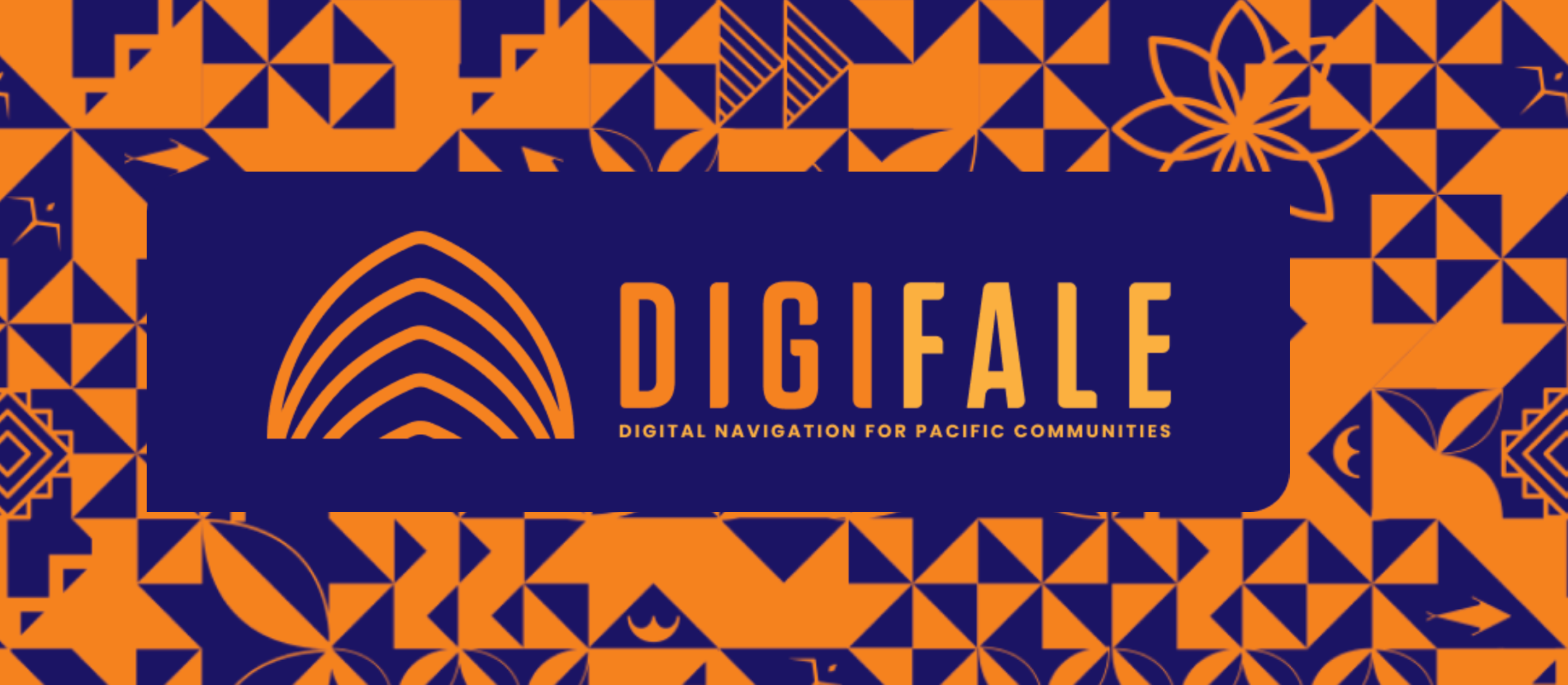DIGIFALE – an intergenerational approach to improving digital inclusion
Ciara Arnot Community Advisor •

In April 2020 as COVID-19 caused communities to lockdown, DIGIFALE started within a Niue community in Mangere, South Auckland. An increased reliance on technology and the internet meant support was needed.
We met Amio Ikihele from Moana Research not long after the completion of this pilot. The DIGIFALE programme involved providing devices and training to elderly Niuean people. They taught young people, Navigators, to teach their elders, mamatua, basic skills and confidence to use digital devices. An understanding of the value of family and the church as a vital support system was foundational to how this programme approached digital inclusion.
InternetNZ funding enabled an evaluation of this pilot. By demonstrating impact through evaluation, they continued to attract funding to sustain the programme while also providing insights for other minority groups wishing to improve digital inclusion within their communities. The research objectives included generating insights on whether the provision of mobile phones alongside support from a family member can provide a sustained intergenerational support mechanism to become digitally connected.
Ikihele interviewed 12 Niue mamatua who received mobile phones.
"Initially, the focus is on building basic mobile literacy, like getting to know how a mobile phone works," says Ikihele. "Then people learn simple functions like taking photos, text messaging or scanning QR codes, and finally more advanced skills like using your patient portal to make appointments and get test results online, and searching for credible health websites."
She found that for those living in an intergenerational household, there are a few digital navigation tips you can use with older family members:
- Take your time – have patience as individuals navigate new digital spaces.
- Build on their interests – it's about them, not you, and they may not like Tik Tok or Instagram as much as you do!
- Build their confidence – people are better motivated to learn when they are encouraged.
- Don't get offended – If they prefer to learn from their grandchildren or younger members of your household (and not you), that's ok. Let this be an opportunity to strengthen their intergenerational connection and communication. (full article - https://www.digifale.co.nz/our_stories/digital-inclusion-within-our-intergenerational-digifale/)
After the pilot, Ministry of Health digital enablement funding allowed the initiative to expand to Cook Island, Samoan and Tongan groups, and another Niue group. We also expect the skills gained will positively impact the future of the Navigators trained within the programme. Undoubtedly, these effects will ripple out within the community.
As part of the evaluation of the pilot, a literature scan was carried out, to bring together grey literature from 2010-2021 relating to digital inclusion/exclusion/divide/literacy/equity as it relates to Pacific people. They found similar findings consistent across literature and reports by the Citizen Advice Bureau, NZ Digital Government, BNZ Digital Skills, People for People, and the Digital Inclusion Research Group. This sparked something of a lightbulb moment in which the approach shifted from an integrative literature review to collating these into a clearinghouse of information. Realising that the most useful thing would be to draw all this information together under one fale or house, digifale.co.nz was born. Rather than regurgitating existing knowledge, it creates an accessible way to connect with this information.
Pacific peoples are underserved, and we recognise the importance of research led by Pacific for Pacific to inform sectors such as health, social development, education and other key stakeholders.
Technology can provide great benefits, but context and approach are key to realising the benefits. Partnering with families and communities is vital. In this case, it's about building essential digital skills to make informed choices to improve wellbeing and social connections.
InternetNZ
Each year InternetNZ uses profits from the sale of .nz domain names to give out community funding. They provide funding for community-led initiatives that extend the availability, use, and benefit of the Internet in Aotearoa.
This initiative was the recipient of funding in 2020. View the mid term and final report from this project.